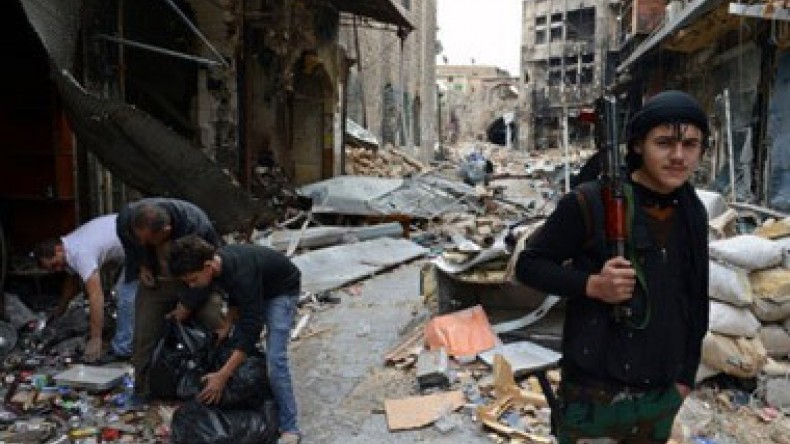
Persian Gulf states recognise Syria opposition
Six Gulf states have recognised a new Syrian opposition coalition as the country's "legitimate representative," BBC reported.
The National Coalition for Syrian Revolutionary and Opposition Forces was unveiled in Doha on Sunday, aimed at uniting the various factions seeking to overthrow President Bashar al-Assad.
Western nations and Turkey welcomed the coalition's creation.
The 22-member Arab League later recognised the group as the "legitimate representative" of Syria's opposition.
Meeting in Cairo late on Monday, Arab League foreign ministers released a statement calling on other anti-Assad groups to join the opposition coalition.
However the group stopped short of giving it full recognition as the representative of the Syrian people.
Some members of the League, such as Iraq and Lebanon, were still "not fully supportive of the Syrian revolt", and are reluctant to delegitimise Mr Assad, an unnamed Arab League official told Reuters.
Meanwhile, Israel's military said its tanks had scored "direct hits" on Syrian artillery units after Syrian mortar shells fell near an Israeli army post on the Israeli-occupied Golan Heights for the second consecutive day.
A complaint had been filed with UN forces operating in the area, it added, after what correspondents described as the most serious episode between the two countries since the Arab-Israeli war of 1973.
Elsewhere, Syrian government aircraft bombed the rebel-held town of Ras al-Ain, near the border with Turkey.
Both jets and helicopters targeted the town, sending civilians fleeing into the Turkish settlement of Ceylanpinar. Casualties were reported.
Nato has said it will do what it takes to protect and defend Turkey - one of the alliance's member states.
Over the last week, there has been some suggestion it might supply Turkey with Patriot surface-to-air missiles in order to help secure the border.
"Turkey can rely on Nato solidarity, we have more plans in place to defend and protect Turkey, our ally, if needed," Secretary General Anders Rasmussen told reporters in Prague, without elaborating.
Observers and activists estimate that more than 36,000 people have been killed in the long-running uprising against President Assad. Hundreds of thousands have sought refuge in neighbouring countries.
Newsfeed
Videos






























